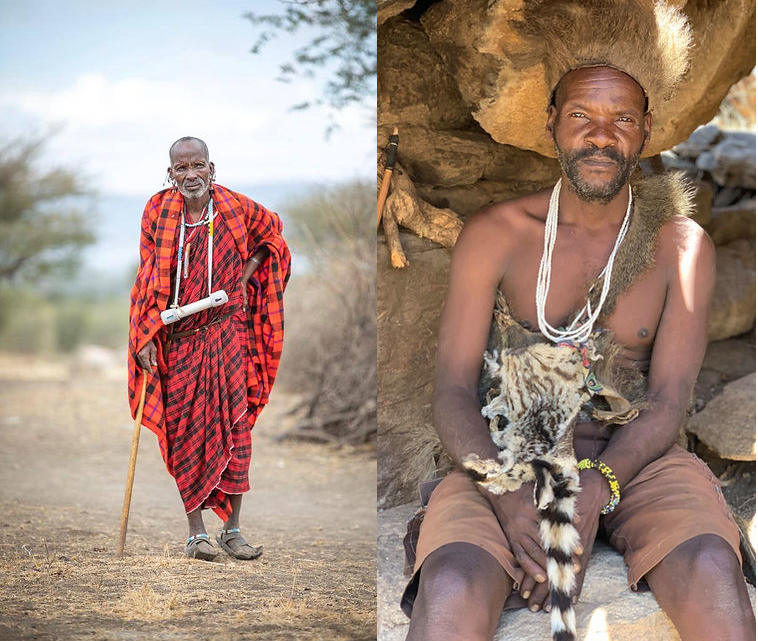EXPLORE MAASAI AND HADZABE CULTURES IN TANZANIA
THE MAASAI
More than a hundred years ago the Maasai ruled over much of East Africa. Their feared warriors were renowned for their bravery. In the past, every Maasai warrior was obliged to kill a lion, as it was symbolically a rite of passage. Until these days, the Maasai have a special relationship with their land, the wild animals, and cattle.
The Maasai are pastoralists who have adopted a revitalized approach to preserve their culture in modern times. Their traditional diet consists of almost entirely on the meat, blood, and milk of their herds. Their way of life is deeply rooted in traditions that have been practiced in the same way for hundreds of years. The Maasai are known for their age-set system that is united around prophetic leaders or diviners. There are about 430,000 Maasai in Tanzania who live along the Great Rift Valley on semi-arid and arid lands. Immerse yourself in fascinating Maasai culture.
THE HADZABE
The Hadzabe are hunter-gatherers who live only in the Lake Eyasi region of Tanzania. There are estimated to be around 1,300 Hadzabe people living in Tanzania. Their way of life has remained unchanged over the millennia and they live in small wandering groups of about twenty individuals. We join one of these family units in the deep bush. The Hadzabe men hunt animals using three different kinds of bows and arrows. As well as wild meat, the Hadzabe women gather roots and tubers using digging sticks, and men collect natural wild honey found in trees.
The hadzabe grow no food, raise no livestock, and live without rules or calendars. The Hadzabe are the heirs of the very first human beings, the kids of Olduvai Gorge and Koobi Fora who still have a symbiotic relationship with the environment, the purest example of an anarchic society with no rules, and no chief. The Hadzabe live from nature and their spirituality is not a religion but rather an integral part of their culture. You have the privilege to learn more about their relationship with the natural world.

